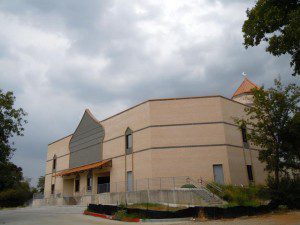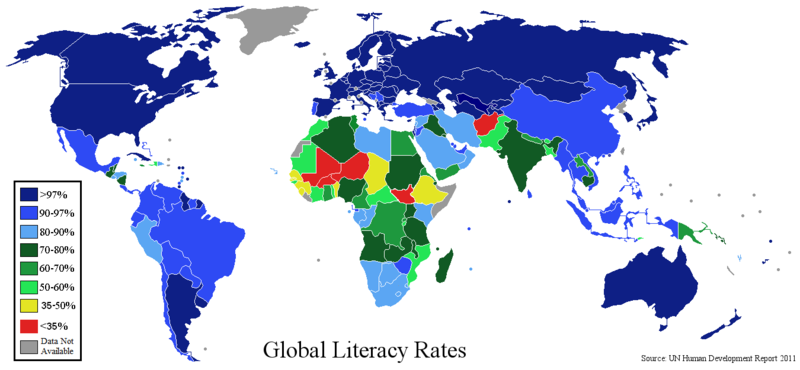
The entire set up of the mosque says, “Women have no value.” Body language, the hiddenness of that which is female, the building structure all say, “Women, don’t bother.”
“It’s God’s will that a woman’s head and arms be covered.” Well, I had worn a headscarf, but it was sheer, and realized too late that my three-quarter length sleeves were also inadequate. That was my beginning of a fascinating, but personally challenging, worship service at the Denton Islamic Study Center.
My general rule is to simply go to worship services unannounced and see what happens. In this case, I wanted to give some warning, so asked Imam Mohammad Fuoad if I and one or two other non-Muslim friends could attend a time of worship at the local mosque, housed in the Islamic Society of Denton building. I did explain that I would be writing about it.
He graciously agreed and we set a date for Friday, Nov. 21. I indicated that I would dress modestly and asked whether I should plan on a headscarf.
We arrived early for the Friday afternoon study and prayer time. The Imam, with great welcome and kind courtesy, showed us into his office. A few moments later, a female Muslim joined us, and together she and the Imam graciously answered some of our questions.
We learned that the study center houses the first Islamic Mosque ever built on Texas soil. In 1980, Islamic students at UNT were troubled by not having a dedicated place of their five times daily required prayers. They began to raise money, appealing primarily to their Saudi Arabian parents and built the original mosque. A few months ago, long having outgrown that space, a larger one was built on the same property.
After our brief conversation with the Imam, the men and women separated. A mosque does not have chairs, as people kneel on rows marked on the carpet. However, the two men who accompanied me were offered chairs at the rear of the room, where they could comfortably see and hear. A thirty minute message, delivered in both Arabic and English, was offered, covering the commandment to honor one’s mother and father. After that, the prescribed prayers, chanted by the leader in rhythmic, melodic Arabic, commenced. The entire service lasted just over 45 minutes.
My experience as a woman differed significantly from that of my companions. I was led to the back part of the facility, where I could remove my shoes and place them on racks in the women’s shoe room. We then entered the Sister’s room, carefully segregated from the main area of the mosque.
The same carpeting covered the floor here–a well padded deep green color, interspersed with red patterned lines, upon which the women could sit or kneel. I was offered a chair, and so sat, along with one or two older women.
We faced a large wall, covered with highly reflective glass. With concentration, I was able to see past the reflection into the men’s area, observing a man on a raised platform delivering a message. On the men’s side, the glassed wall was mirrored, so the estimated 400 in men attendance could not see the women.
Unfortunately, the sound system for the women’s area was not working. Two or three of the approximately 20 women gathered put their ears up to the glass in a futile attempt to hear the message.
Approximately ten minutes later, and because of the sound system problem, the women were escorted into the anteroom of the men’s area. Two or three chairs were quickly set up, placed precisely on the red patterned lines, the rest of women settling along the back wall. Every man except one sitting in that section quickly moved into the main room. As more and more men entered, wishing to be there for the afternoon prayers, the anteroom itself also filled. I noted that as crowded as the room became, no man would sit on the same row as the one we women in chairs occupied.
Once the message itself had concluded, the women were ushered back into the Sister’s Room for the prayers. At this point, with the sound system still not working, almost all the women gathered in a row as close to the window as possible, sitting on their knees, repeating the “amens” to various parts of the prayer, and mirroring the actions of the men as they periodically stood and then bowed with their heads to the floor as required.
All women were dressed in traditional Muslim clothing, covering their entire bodies except hands and faces; 99% of the men were neatly clothed in comfortable western garb, mostly jeans and long-sleeved shirts. I spoke afterward with the sweet woman who had served as my guide and told her how uncomfortable the separation made me, along with the apparent lack of concern that the women could not hear or participate more fully in the worship experience. With patience, and with much faith, she explained that such a set up gave women much honor and was indeed ordained by God. She then reiterated her contention that “It is God’s will that a woman’s head and arms be covered.”
I responded quietly, “It is your understanding that this is God’s will.”
[NOTE: this article ran originally in the November 28, 2014 edition of the Denton Record Chronicle.]
[Note Two, Feb 2, 2015. I just found this article detailing the opening of a women’s only mosque in Los Angeles.
It is worth reading.]
Additional Thoughts
After the service was over, one of the men offered to give us a tour of the original mosque, and we quickly accepted. Here, with a space that would hold about 200, the Sister’s Prayer Room was exceedingly small, perhaps holding ten people, and fully walled in. A small TV screen was set up for viewing the main room. The tour leader bragged about those accommodations, mentioning that it had a restroom right off it.
I mentioned to him how disturbing I was finding all this deep segregation of the women. He then told me several things I found enlightening. One, although he has been a faithful and practicing Muslim his entire life, he himself does not speak Arabic. The five times daily prayers are all in Arabic. This man does not know what they say in English. I also learned that women are not required to come to the mosque to pray, but the men are. Not that they all do, but there are significant rewards for those that do–in fact a 27 fold reward.
The entire set up of the mosque says, “Women have no value.” Here’s a blog by a Muslim woman that speaks quite eloquently to that fact. Body language, the hiddenness of that which is female, the building structure all say, “Women, don’t bother.” When I was in the anteroom to the mosque, and the men came in late, they all engaged in a moment of prayer before settling in. As they touched their foreheads to the ground, I was given the sight of multiple men’s backsides stuck in the air right in front of my face. I admit I didn’t like it at all–and struggled with this sense of being deeply insulted.
Another thing I learned is that a large percentage of Muslims worldwide are illiterate (that would not be the case in this particular mosque which caters to UNT students). This is especially so among female Muslims, where fewer than half may be literate. Below is a chart of literacy rates around the world. Many areas dominated by Muslims have far lower literacy rates that other countries–and assume female literacy rates significantly lower than shown here.

With a limited literacy rate, people are going to believe what authority figures tell them. And Muslim authority figures make it clear: women do not matter.
Frankly, this frightens me and also helps me understand why ISIS terrorists have no problem snatching women to use as sex slaves. Women are not human in their world nor do they have any inherent dignity that should be respected.
At some point, thanks to courageous people like Malala Yousafzai, Muslim women will become educated–and Islam will never be the same. But for now, expect more and more violence against women and a concerted effort to keep them illiterate.
Here is a call to prayer with English subtitles:












